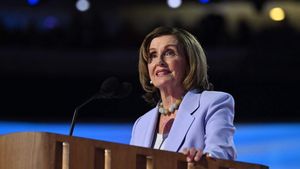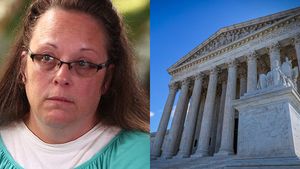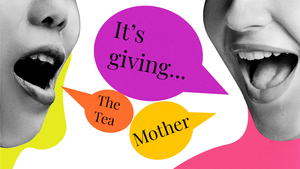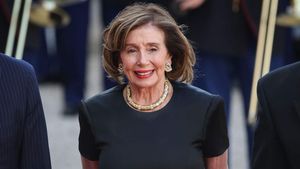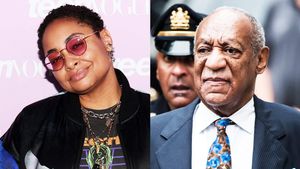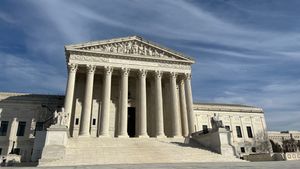
Treatment GuideJust DiagnosedSex & DatingAfrican AmericanStigmaAsk the HIV DocPrEP En EspañolNewsVoicesPrint IssueVideoOut 100
CONTACTCAREER OPPORTUNITIESADVERTISE WITH USPRIVACY POLICYPRIVACY PREFERENCESTERMS OF USELEGAL NOTICE
© 2025 Pride Publishing Inc.
All Rights reserved
All Rights reserved
By continuing to use our site, you agree to our Privacy Policy and Terms of Use.
The AIDS epidemic looks very different today from what it did 10 years ago. The most notable change is hue. AIDS today is a black disease. No matter how you look at it--through the lens of gender, sexual orientation, age, socioeconomic status, level of education, or region of the country--black people bear the brunt of the AIDS epidemic in America today. AIDS is the leading cause of death among black women ages 24 to 35. Black people represent nearly 50% of the estimated 1.2 million Americans living with HIV today, and half of all new infections occur in black communities. So what have been the major events over the past 10 years that have contributed to the AIDS epidemic we see today. If I were to create a list of the top 10 events that most impacted the AIDS epidemic in America over the last decade, the magnitude of the epidemic in black America would be the first five. With that as a backdrop, my remaining five would be: [ 5 ] The 2004 vice presidential debates moderated by Gwen Ifil. I was first struck by the visual, when Gwen Ifill, the black female moderator of the lone vice presidential debate between Vice President Dick Cheney and Sen. John Edwards, asked the question about African-American women and AIDS. Cheney's response was pathetic, and John Edwards's was only marginally better. Their responses highlighted how invisible the AIDS epidemic in black America was to our leaders. [ 4 ] Black media dramatically increasing the quantity and quality of their HIV coverage. Over the past 10 years, the black media has made a huge commitment to raising awareness about AIDS. Today, you almost cannot pick up a black newspaper and not see a story about HIV. Black talk radio is constantly talking about HIV. Cable TV and the blogosphere have recently joined the fray as well. Last year the Black AIDS Institute tracked over 250 million print media impressions in black media. Hopefully, this heightened national response will manifest itself in reduced HIV rates, increased testing, increased use of care and treatment, and reduced HIV stigma in black communities. [ 3 ] The beginning of a movement to develop a national AIDS strategy. When the United States offers aid to developing countries to address their AIDS epidemics, we require them to have a national strategy to reduce new infections and provide treatment. Yet 28 years into the AIDS epidemic and nearly 30 million deaths worldwide, the United States still doesn't have a national plan that provides a roadmap for effective delivery of services and steadily improved results. Finally, a broad cross section of AIDS activists is calling for the creation of a national AIDS strategy. Presidential hopeful Sen. Barack Obama has endorsed the concept. Members of Congress are in support. This is a critical piece in the puzzle to end the AIDS epidemic in the United States. [ 2 ] Black leaders issuing a declaration of commitment and call to action by other black leaders. The international AIDS conference held in Toronto in 2006 marked a major milestone for black America. Black leaders from a number of national traditional black institutions came together to sign the 'National Call to Action and Declaration of Commitment to End the AIDS Epidemic in Black America.' Through this historic commitment, black America effectively stood up to face the challenge at hand. Many would say that this event was a long time coming--that black leaders should have been lining up to throw their support behind ending this epidemic as soon as it became clear that black Americans were disproportionately becoming infected with HIV and disproportionately dying from AIDS. The creation of a national mass black AIDS mobilization might be the most important event toward ending the AIDS epidemic in black America. [ 1 ] George W. Bush being elected president. What can I say! While the current administration has shown leadership in the global AIDS pandemic, it has been a complete and utter disaster when it comes to the domestic AIDS epidemic. The Administration's relentless efforts to put ideology above science and its obsession with abstinence-only education at the expense of comprehensive prevention measures have made us lose ground. Wilson is the founder and director of the Black AIDS Institute. He holds the Number 2 spot in 'Our 10 Most Admired HIVers' list.
From our Sponsors
Most Popular
BREAKING: Supreme Court rules to save free access to preventive care, including PrEP
June 27 2025 10:32 AM
Thanks to U=U, HIV-positive people can live long, happy, healthy lives
July 25 2025 2:37 PM
The Talk: Beyond the exam room
August 13 2025 3:15 PM
Plus: Featured Video
Latest Stories
Amazing People of 2025: Javier Muñoz
October 17 2025 7:35 PM
It’s National PrEP Day! Learn the latest about HIV prevention
October 10 2025 9:00 AM
“I am the steward of my ship”: John Gibson rewrites his HIV narrative
September 16 2025 2:56 PM
“So much life to live”: Eric Nieves on thriving with HIV
September 03 2025 11:37 AM
The Talk: Owning your voice
August 25 2025 8:16 PM
The lab coat just got queer
August 21 2025 10:00 AM
Messenger RNA could be the key to an HIV vaccine — but government cuts pose a threat
August 20 2025 8:02 AM
The Talk: Navigating your treatment
August 01 2025 6:02 PM
The Talk: Starting the conversation
July 25 2025 4:47 PM
How the Black AIDS Institute continues to fill in the gaps
July 25 2025 1:06 PM
“I felt like a butterfly”: Niko Flowers on reclaiming life with HIV
July 23 2025 12:22 PM
Dancer. Healer. Survivor. DéShaun Armbrister is all of the above
July 02 2025 8:23 PM
1985: the year the AIDS crisis finally broke through the silence
June 26 2025 11:24 AM
VIDEO: A man living with HIV discusses his journey to fatherhood
June 10 2025 4:58 PM
Trump admin guts $258 million in funding for HIV vaccine research
June 03 2025 3:47 PM
Grindr is reminding us why jockstraps are so sexy and iconic
May 02 2025 5:36 PM
HRC holds 'die-in' to protest Trump health care cuts
April 28 2025 2:11 PM
Two right-wing Supreme Court justices signal they may uphold access to PrEP and more
April 21 2025 4:10 PM






























